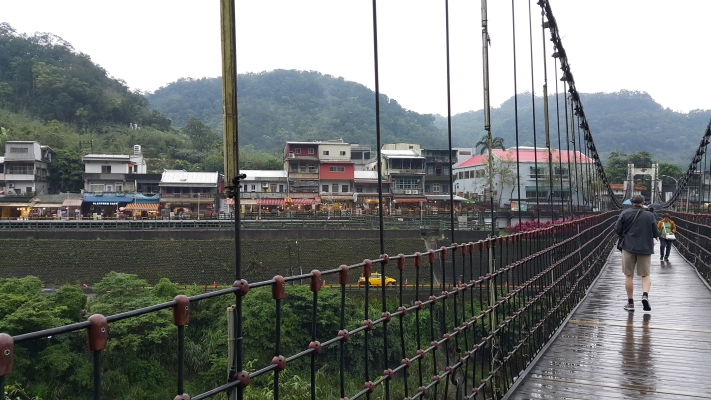WEDNESDAY, 15 MAY 2019
The problem with earning your money with creative work is that you’re either very lucky that people continue to buy your creative work even if you do what you want and in the style you want, or you do end up looking at what’s in demand for the sake of your survival – types of products and styles, and then producing what the market wants to buy – which means you’re not doing free creative work anymore.
So, you’re either very lucky that people keep buying your free creative work, or you’re not so lucky and you end up doing what the market wants, and how they want it. And even if you fall in the lucky category, how long do you expect it to last?
TUESDAY, 28 MAY 2019
01:30
To make money, you only need to know a few important things. Problem is, you need to discover these few things in an ocean of information.
10:02
The problem is therefore not the amount of knowledge or information you need to discover and learn, but to discover a handful of specific snippets among dozens, even hundreds of snippets of information, and to choose between a variety of options, opportunities and possibilities.
THURSDAY, 6 JUNE 2019
A friend of mine who had already been in Taiwan since early 1998 offered to loan me money in October of that year for a plane ticket to Taiwan – in case I wanted to get out of my office job and return to English teaching. If he had offered me money for a plane ticket to any city in Northeast Asia … I might never have left Johannesburg. Fortunately for me the offer and therefore the choice was simple: Taiwan, Kaohsiung – take it or leave it. And just look at how well things worked out.
MONDAY 10 JUNE 2019
00:17
What does success look like? The process that leads to it is boring and monotonous, and you only see the result after months or years of hard, boring, monotonous work.
I always thought it could be seen in one brilliant flash, one day that stands out – and then you know.
I reckon there are many people who have stared success in a career or in an endeavour in the face more than once in their lives, but who have walked away time and again because they didn’t recognize it for what it was: the result of monotonous and boring, repetitive steps, five or six days a week, week in and week out, one year after another.
23:03
I’m reading the piece, “The correct answer, and what to do with my exercise bike”. Couldn’t help to highlight a piece of text: “The problem is that I started cultivating and living the lifestyle here [in Taiwan] that I said back in Korea I wanted to live in South Africa. In other words, I got the lifestyle right; it’s just the environment that is wrong.”
FRIDAY, 14 JUNE 2019
Quote from Onder-Kouga – Bakermat van Gerbers en Ferreiras [Lower Kouga – Cradle of the Gerbers and Ferreiras], by O.J.O Ferreira:
“The philosopher Marthinus Versfeld saw the function of a home like this: ‘Your home places you in the world. It gives you an address, somewhere where you can be addressed. Just as your soul needs your body to place it in the world and keep it warm, so a body requires a home to keep it warm. Therefore, your home is also a kind of flesh and blood from which you accept and build up the world. You go in to go out, and you go out to go in. Where your home stands determines your view, and how it looks inside determines how you will see the world beyond.’”
Seeing it that way makes it no wonder that I settled down in Taiwan. I was almost 28 when I arrived here. I was a soul desperate for a body; a body desperate for a home. My inner conflict stemmed from the desire to find this home in South Africa rather than in Taiwan, where it became more tangible by the day. The conflict was finally resolved when I accepted that I had already found, or created my home in Taiwan.
MONDAY, 17 JUNE 2019
The steps you finally take to receive money are, I believe, quite simple, and could surely even be described as easy. Eventually. But to discover, or to learn, or to work out, exactly what steps to take, when, and how – this I know, is not easy, and not simple.
WEDNESDAY, 19 JUNE 2019
I went to see a movie this afternoon at the Kaohsiung Film Archive. There were three movies to choose from. The showing just after lunch suited me better, so that was the one I chose. I was actually relieved that there weren’t more options. I enjoyed the movie – if you can describe a romantic drama about two sick young people as enjoyable. I was also aware that, had I had more options, I would not have chosen this movie.
* * *
Because it might be a lesson for someone else, three reasons why financial prosperity … let’s just say, has been a struggle for me to achieve:
1. I made assumptions too quickly.
2. I followed my own head too easily instead of following instructions.
3. Difficult to admit because choices are so important in one’s life, but … I had too many options. If someone had said, “We took the liberty to choose on your behalf: this one, or nothing; nothing or this one,” I would have said, “Well, then I choose this one.” Chances are it would have worked out well enough.
THURSDAY, 20 JUNE 2019
Sometimes it feels like every week is like the one that preceded it, as if days and weeks and months flow together as one.
Here’s an alternative wording for this situation: Stay strong and healthy.
______________________

